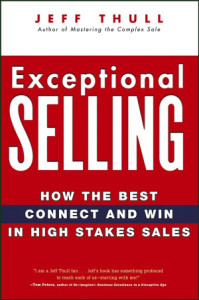Choosing Healthy Blogging Habits

Nurses and chiropractors should have some good ideas on healthy habits, I thought. Sure enough, I found four blogs that I think are examples of effective blog marketing.
“Modern Scrubs for Nurse Practitioners” is a blog post written by Melissa DeCapua. It was an interesting choice for me, because, while the post is informational, it’s a very “sales-y” piece, promoting the EON collection of scrub uniforms manufactured by the Maevn company. (Typically I advise blog content writers to go soft on the selling, sticking to advertorial style.)
Three things save the piece, I believe:
- DeCapua has sent out a survey and is now reporting that, based on the feedback, the company has designed a new line designed for comfort, style, and performance. The blogger has positioned herself firmly on the side of the customers, representing their interests.
- It’s useful and actionable – the blogger includes a size chart, after explaining that “when purchasing clothes online, I inevitably worry about picking the right size”. DeCapua ordered extra small top and small bottoms, and the clothes fit just right. (Sharing her personal experience serves as a testimonial for the readers.)
- It’s very personal. The blogger names her own favorite pick of the collection, the mesh panel jacket.
“Choosing Healthy Breads”, another blog post written by a nurse practitioner, is in stark contrast. This one’s long, too long, I think, for a single post, but it’s also filled with useful information for the readers, and each section is introduced with a directive: “Ensure 100% Whole Gran is the 1st ingredient on the label.” Points of explanation follow that statement. An explanation about why consuming white bread is not a healthy choice, particularly for diabetics, follows the directive “Avoid Refined Breads.” The entire blog post is instructional and informational, with no effort to sell anything to the reader.
“My Neck Hurts When I Wake Up”, a post by Active Family Chiropractic, is effective because it answers questions about a specific problem. The chiropractor, Dr. Lori Goodsell, writes in first person: “I am frequently asked in my clinic, ‘My neck hurts….’.
The blogger then proceeds to give practical advice to readers on how to pick a pillow, depending on whether you’re a stomach sleeper, a side sleeper, or a back sleeper. Dr. Goodsell does invite readers to become patients of her practice: “As always, if you have neck pain when you wake up, you need to have yourself evaluated by a chiropractor.”
I encourage blog content writers to use exactly the kind of “I-you” conversational, personalized tone I found in this blog.
Nurse practitioners and chiropractors have some healthy habits to recommend to us blog content writers!



 “Ask most blog subscribers why they follow a particular blog and you’ll find out that in almost every case they get something out of the blog (whether it be entertainment, advice, research, ideas, etc.),” observes
“Ask most blog subscribers why they follow a particular blog and you’ll find out that in almost every case they get something out of the blog (whether it be entertainment, advice, research, ideas, etc.),” observes  I like receiving e-letters from my friend
I like receiving e-letters from my friend
Follow us online!